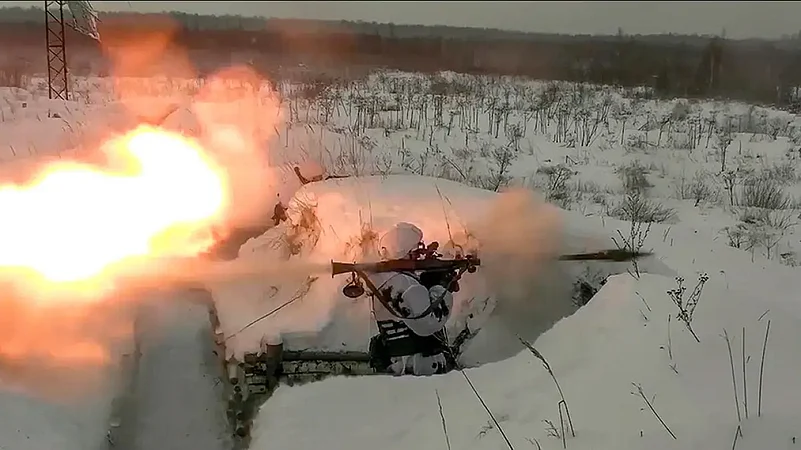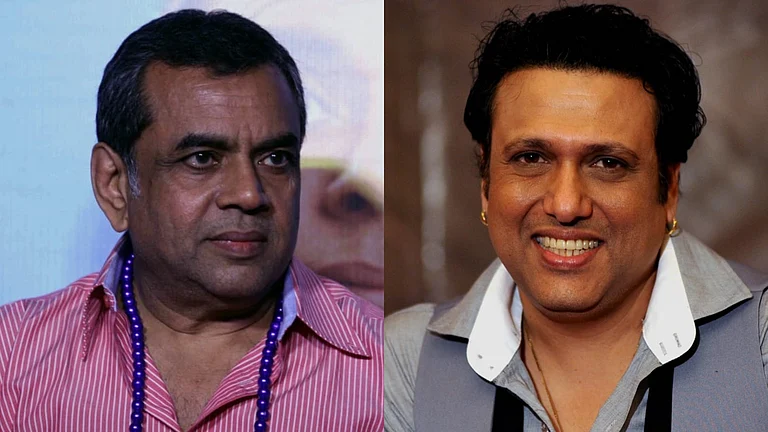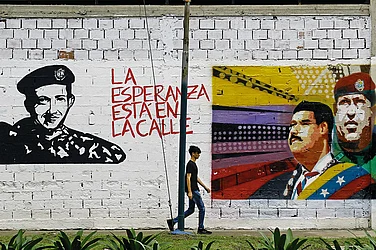Russia announced on Tuesday it will significantly reduce military operations near Ukraine's capital of Kyiv and northern city of Chernihiv as the outlines of a possible deal to end the grinding war came into view at the latest round of talks.
In the talks held in Turkey's Istanbul, Russian Deputy Defense Minister Alexander Fomin said Moscow has decided to “fundamentally ... cut back military activity in the direction of Kyiv and Chernihiv” to “increase mutual trust and create conditions for further negotiations”.
Ukraine's delegation laid out a framework under which the country would declare itself neutral and its security would be guaranteed by an array of other nations. Moscow's public reaction to it was positive and the negotiations are expected to resume on Wednesday.
However, Russia did not immediately spell out what that reduction of military operations would mean in practical terms.
The Russian announcement was met with scepticism from the US and others.
While Moscow portrayed it as a goodwill gesture, its ground troops have become bogged down and have taken heavy losses in their bid to seize Kyiv and other cities. Last week and again on Tuesday, the Kremlin seemed to lower its war aims, saying its “main goal” now is gaining control of the mostly Russian-speaking Donbas region in eastern Ukraine.
US President Joe Biden, asked whether the Russian announcement was a sign of progress in the talks or an attempt by Moscow to buy time to continue its assault, said, “We'll see. I don't read anything into it until I see what their actions are.”
US Secretary of State Antony Blinken said he had not seen anything indicating talks were progressing in a “constructive way” and he suggested Russian indications of a pullback could be an attempt by Moscow to “deceive people and deflect attention”.
He added, “There is what Russia says and there is what Russia does, and we're focused on the latter. And what Russia is doing is the continued brutalisation of Ukraine.”
Western officials say Moscow is reinforcing troops in the Donbas in an attempt to encircle Ukraine's best-trained and best-equipped forces, which are concentrated in the east.
And in the country's south, civilians trapped in the ruins of Mariupol and other bombarded and shattered cities continue to suffer.
Even as negotiators gathered, Russian President Vladimir Putin's forces blasted a gaping hole in a nine-story government administration building in a strike on the southern port city of Mykolaiv, killing at least 12 people, emergency authorities said. The search for more bodies in the rubble continued.
“It's terrible. They waited for people to go to work” before striking the building, said regional governor Vitaliy Kim. “I overslept. I'm lucky.”
Ukraine's military said it has noted withdrawals of some Russian forces around Kyiv and Chernihiv.
Pentagon spokesman John Kirby told CNN the US hasn't seen anything to corroborate a significant pullback from the capital, "but what we have seen over the last couple of days is they have stopped trying to advance on Kyiv”.
Rob Lee, a military expert at the US-based Foreign Policy Research Institute, tweeted of the Russian announcement, “This sounds like more of an acknowledgment of the situation around Kyiv where Russia's advance has been stalled for weeks and Ukrainian forces have had recent successes. Russia doesn't have the forces to encircle the city.”
The meeting in Istanbul was the first time negotiators from Russia and Ukraine talked face-to-face in two weeks. Earlier talks were held in person in Belarus or by video.
Among other things, the Kremlin has demanded all along that Ukraine drop any hope of joining NATO.
Ukraine's delegation offered a detailed framework for a peace deal under which the nation would remain neutral but its security would be guaranteed by a group of third countries, including the US, Britain, France, Turkey, China and Poland, in an arrangement similar to NATO's "an attack on one is an attack on all” principle.
Ukraine said it would also be willing to hold talks over a 15-year period on the future of the Crimean Peninsula, seized by Russia in 2014.
Vladimir Medinskiy, the head of the Russian delegation, said on Russian TV that the Ukrainian proposals are a “step to meet us halfway, a clearly positive fact”. He cautioned that the parties are still far from reaching an agreement, but said they know now how to move further toward compromise and were not just marking time in talks”.
Fomin likewise suggested there had been progress, saying “negotiations on preparing an agreement on Ukraine's neutrality and non-nuclear status, as well as on giving Ukraine security guarantees, are turning to practical matters".
Over the past several days, Ukrainian forces have mounted counterattacks and reclaimed ground on the outskirts of Kyiv and other areas.
Ukrainian soldiers gathered in a trench for photos with Col. Gen. Oleksandr Syrskyi, who said that Ukraine had retaken control of a vast majority of Irpin, a key suburb northwest of the capital that has seen heavy fighting.
“We defend our motherland because we have very high morale,” said Syrskyi, the top military commander in charge of the defense of Kyiv. “And because we want to win.”
Ukrainian forces also took back Trostyanets, south of Sumy in the northeast, after weeks of occupation that left a landscape of Russian bodies, burned and twisted tanks and charred buildings.
Putin's ground forces have been thwarted not just by stronger-than-expected Ukrainian resistance, but by what Western officials say are Russian tactical missteps, poor morale, shortages of food, fuel and cold weather gear, and other problems.
Repeating what the military said last week, Russian Defense Minister Sergei Shoigu said Tuesday that “liberating Donbas” is now Moscow's chief objective.
While that presents a possible face-saving exit strategy for Putin, it has also raised Ukrainian fears the Kremlin aims to split the country and force it to surrender a swath of its territory.
With AP inputs


























